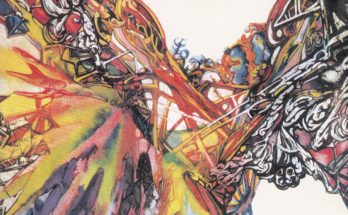By Rodrigo Díaz, Bernardo Moreno, and Josemaría Moreno
This is an autobiographical, investigative literary genre, based on real events, which has been in fashion for some time and in which many of us have delved, from gonzo journalism, passing through beat literature, to Truman Capote and his novel “In Cold Blood.” It seems to us even deeper and with more tools than journalism, with great contemporary expositors such as Emmanuel Carrère, Michel Houellebecq, and Jordi Soller.
Benjamin Lorr was at a recent literary festival. He has written two incredible novels of this very stimulating genre. It would seem that the author narrates the events of his life with the aim of telling us something that has obsessed him so much, and which made him investigate in such depth, that he has the need to transmit it in the most truthful and forceful way he can. It is a genre where ambitions, passions, the best and the worst of the human being stand out. It is not fiction it is telling you; it is the crudest reality expressed in the most poetic way there is, or as dirty and emaciated as the truth is.
Son of War, Ricardo Raphael, 2019
Where to start with this excellent work? On the one hand, it is the investigation of a person who is in a prison and is said to be one of the founders of that violent criminal group made up of highly trained former military, Los Zetas. Is the inmate who he says he is? The journalist embarks on an intense investigation to find out if he is or not. On the one hand, the inmate tells him the story of his life with such incredibly accurate and verifiable data—such a detailed and intimate narrative and at the same time true and substantial. The next pillar of this literary construction is the manuscript that the journalist delivers—perhaps with spelling and style corrections—of the letters that the inmate gave him. The last part addresses what the journalist feels living with this guy, who has five stars tattooed on his back, one for each state conquered by the Zetas and who, furthermore, is manipulative and a liar. The journalist should not be seduced by the games of the inmate, but at the same time it seems inevitable. This is one of the best nonfiction works, written by the great Mexican journalist and excellent writer Ricardo Rapahel.
The Last Dance, Jason Hehir, 2020
This documentary, which had the whole world in anticipation during the pandemic and the confinement, won an Emmy for best non-fiction series. And although defining non-fiction is a complex exercise, for an audiovisual production we believe that it meets the requirements: the editing work is, on the one hand, captivating, but on the other hand, it is somewhat biased, and not necessarily for the worse. It is known that Scottie Pippen, after an exhaustive round of interviews, was not at all satisfied with the representation that was made of the Bulls team in that decade of the ‘90s, since the documentary claims that the success of this franchise is due to the genius and skill of Michael Jordan. It’s debatable, and that’s what the documentary achieves, but certainly Pippen’s point is valid: such a great team cannot depend on a single member; the unparalleled triumphs they achieved were due to an exceptional sports machine that brought together talent, at its best, from all its members—glorious moments not only for Jordan, but also for Kerr and Kukoč, to name two unforgettable stories. The global narrative of the documentary is captivating and cements one of the most fascinating sports sagas in history, and thus, the monumental figure of the greatest: Air Michael Jordan.
Pop Street Sound, Wakal, 2002
Bringing the concept of non-fiction to the musical field inevitably led us to projects where the sampler plays a leading role in the construction of a sound proposal: sounds removed from reality that are sequenced to create melodies, where they may well be accompanied by other instruments, or by voices, or by none of the above, and this is what Wakal does in its productions. Wakal is an electronic music project by the Mexican member of the Discos Konfort collective, Jorge Govea, especially in his first LP, Pop Street Sound, whose cover shows us a famous rickshaw from the downtown neighborhoods of Mexico City, and with justification. Dedicated to people who work on the street, Wakal samples the noise of city traffic, people’s voices, street vendors; the exclamations typical of public disorder and everyday life, wrapped in the rhythms of house, drum and bass, and trip hop. This is an unmissable album that, moreover, was composed, recorded, and edited on various rooftops in Mexico City, thus immersing us in the sound and natural depth of one of the largest cities in the world.




